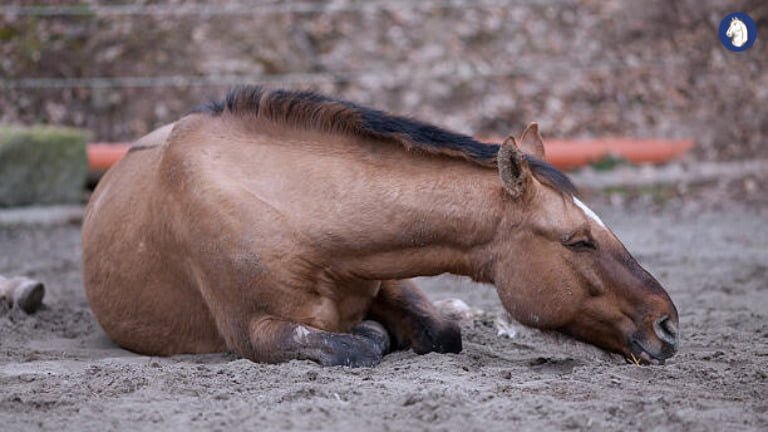Colic is a common and often serious medical condition in horses that can be caused by a variety of factors. Colic is broad term that refers to any type of abdominal pain in a horse.
What causes colic?
There are a wide variety of risk factors that can make a horse more prone to colic.
- Intestinal blockage
- Stress
- Twisted or displaced intestines
- Eating moldy or contaminated grain or hay
- Abrupt change in feed
- Dehydration
- Ingesting Sand (more common in areas with sandy soil)
- Parasites
- Tumors, ulcers, and lesions in the GI track
- Eating excessive amounts of grains
- Some Medications
Is colic the same in all horses?
No, there are several different types of colic.
Spasmodic Colic
The most common type of colic, is caused by a contraction of the muscle lining of the intestines caused by stress, over-excitement or changes in feed.
Impaction Colic
This is caused by a blockage in the horse’s digestive tract caused by a firm mass of food or foreign material such as sand or dirt.
Torsion Colic / “Twisted Gut”
This happens when the intestine becomes twisted causing a lack of blood flow and necrosis of the intestine. This type of colic is a medical emergency and can be fatal if not treated properly.
Gas Colic
This is caused by a build-up of gas in the GI tract from excessive fermentation in the gut or an inability to expel the gas.
What are the signs of colic?
Signs and severity of colic can vary depending on the cause and type of colic, and each horse shows signs differently. Some horses are stoic, showing little signs and other horses can be more sensitive and dramatic. It is your job as a horse owner to know what are normal behaviors for your horse and what is not normal.
A few common signs include:
- Repeating Pawing of the ground
- Lying down and rolling
- Looking at or kicking off the belly
- Excessive sweating, flared nostrils
- Reduced or absent gut sounds
- Increase heart rate
- Loss of appetite
- Depressed, restless, or agitation
- Little to no manure
- Stretching or parking out
Act sooner than Later
If you notice any of these signs in your horse it’s important to monitor them closely. If you suspect your horse may be colicing, contact your veterinarian to seek guidance as to what is the best course of care.
Early contact with your veterinarian will let them be prepared to come out if the symptoms get worse or don’t improve. Colic is a very serious condition that can be fatal to your horse if not managed promptly.
All horse owners should be aware of the risk factors, signs, and symptoms of colic.
You should also know what to do if you suspect your horse is colicing, so as to provide the best care possible.


Comments are closed.